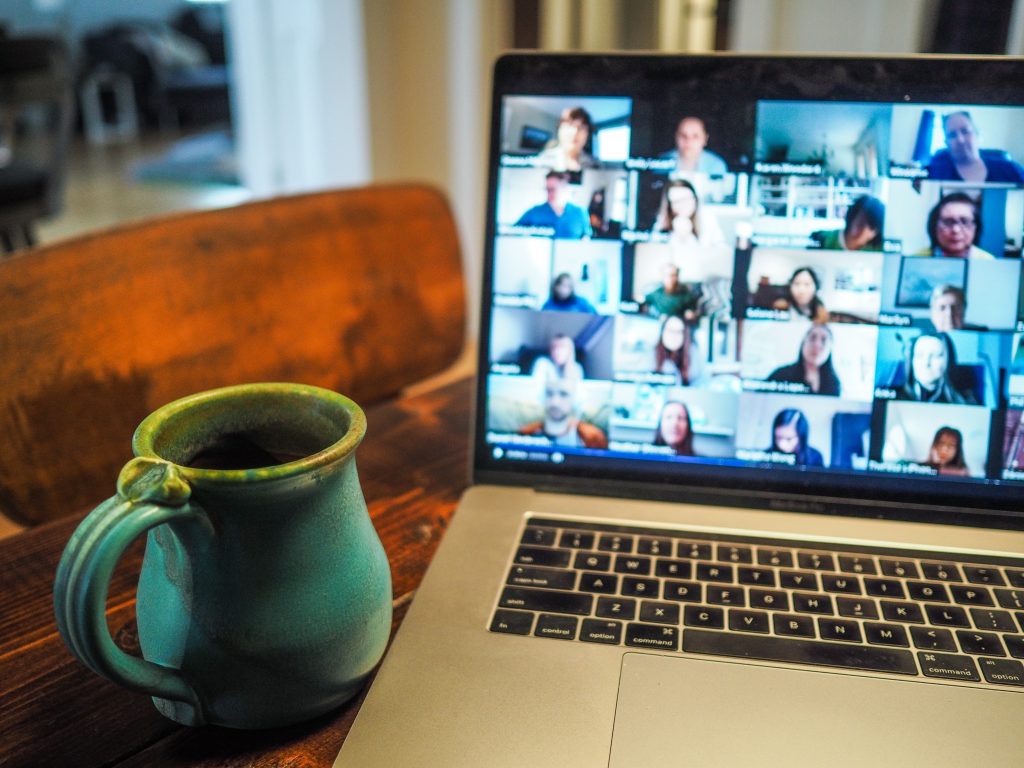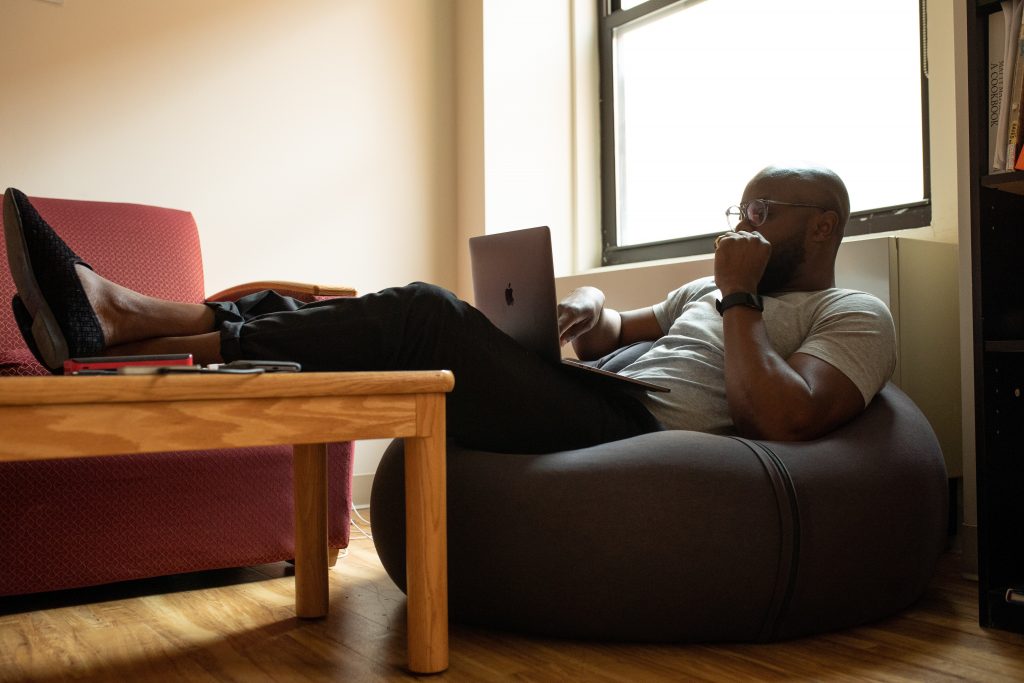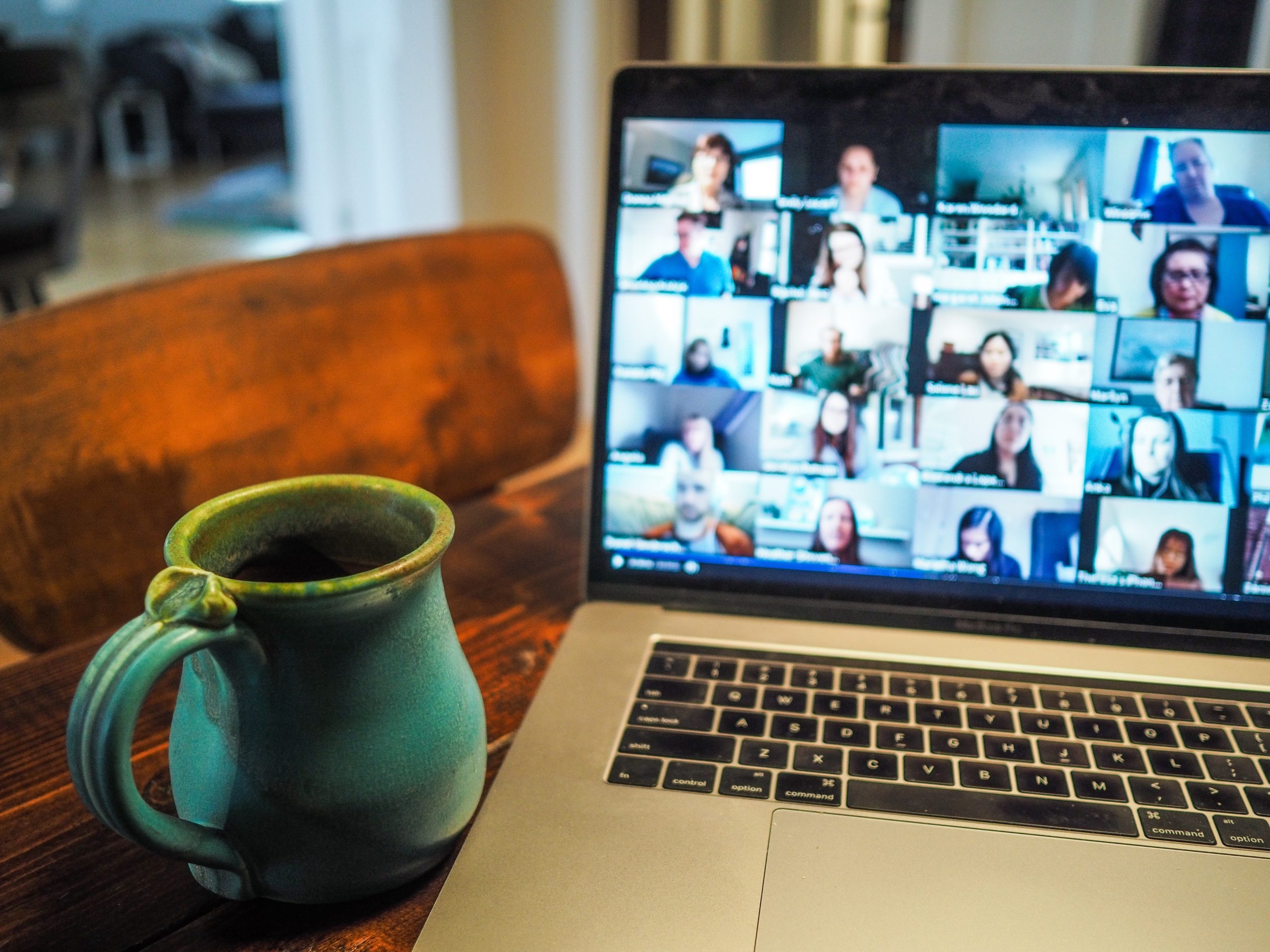
For many of us, working from home continues to be a daily reality due to Covid- 19, with almost half of British workers reportedly working away from their organisation’s headquarters. As the UK heads into another national lockdown it appears this way of working is here to stay for the foreseeable future. With this in mind, how do we continue to adapt to long-term home working and what have we learned so far?
To find out how our industry partners at TalkTalk are managing their business during the Covid-19 pandemic, we spoke to Salford graduate Lee Hull, who was Managing Director of Business Direct at TalkTalk until very recently. Since graduating from Salford in 1997, Lee has forged a successful career in the telecommunications and business sectors and was very recently appointed as Chief Executive of business services provider Verastar.
During his time at Salford, Lee took advantage of all that University life had to offer, serving as a sabbatical officer for the Students’ Union as well as editor of the student newspaper, Student Direct. He still maintains a close connection with the University to this day as a Trustee of the SU.
We met with Lee a few weeks ago, when he was still with TalkTalk, to get his take on what he has learned from managing a team remotely during the Covid-19 pandemic, when most of them are working from home. He spoke about the initial challenges, the measures he put in place to support his team and how we can translate some of the positive aspects of home working into our post-Covid lives.

“The key to home working is remembering why you come to work and remembering why you enjoy working. That has been really important for us.
At TalkTalk we have coped quite well but we’ve really had to pull together as an organisation. It’s not all been a joy, I’ll be honest. There was a period after a few months where my four walls were driving me crazy, and I think that’s an important part of leadership. If I sit here and tell my team that everything is great, it’s not very authentic. You need to feel what people are going through.
The people at TalkTalk have coped with working from home differently, depending on their living situations. Some people have turned their kitchen or living room into an office, or even their kid’s bedroom, so there have been lots of different challenges. As an organisation, we initiated things like ‘walk and talk’ meetings, where we would all take a walk during our meeting and talk on the phone rather than at our desks. At the times when we have been able to return to the office, we made sure this was strictly on a voluntary basis. That’s worked really well as it meant those individuals whose home situation might not be ideal for working were able to come in and use the office facilities, while those who are happy at home have not felt pressured.

Another thing that’s important is reminding people what the cause is. Our cause, which is simple on the business side, is to support businesses and make them better businesses. We’ve supported thousands of organisations financially through Covid-19, with flexible payment terms and stuff like that, we’ve supported hundreds of organisations with getting them set up with home working, we’ve turned hundreds of our installs into hospitals and doctors and critical infrastructure. So, we make sure we communicate the impact of our work to the team, so they can feel proud that they’ve been involved with installations in critical sites. People want to feel like they’re doing their bit and contributing in a positive way. Our staff satisfaction surveys have shown encouraging results, with satisfaction on the whole rising during the pandemic, so it shows people are responding well and they feel like we’re managing it in the right way.
In a way, it has been an opportunity for us to be closer to our customers, as they are all going through the same thing as us. Everyone is more reliant on a strong internet connection than ever, so we’ve been doing a lot of work to make sure we meet those increased demands. We’ve been lucky that there has been a need for our industry at a time of such financial instability. Companies like Zoom and Microsoft have seen huge surges in usage during the pandemic and the telecoms industry has been a necessity as well. I think if you’ve been in tech, you’ve been in an industry that has been much more protected than lots of others, such as aviation, hospitality and media.

In terms of the future of home working, the genie is well and truly out of the bottle. We’ve found that it works and I think it is here to stay, whether that is one day a week, two days a week or five days a week. It will have to depend on the role you play in the organisation and whether your job can be done from home or not.
Companies will need to become more output focussed rather than keep the usual 9-5 working pattern. We need to put trust in our staff to manage their workloads in the way that works for them, while still getting the results we need. Of course, we should think about how we manage that long-term, but we need to do this to remain competitive as an employer. With new employees, if we want to attract the right people then we need to make sure flexible working is on the table as this is what they will be looking for more than ever, and trust will be in important factor.”
Thank you to Lee for sharing his insights with us. If you would like to connect with your fellow Salford graduates and share your own stories and examples of best practice, you can do this and much more on your online alumni hub, fromsalford.com.
TalkTalk currently have vacancies to fill in a range of positions, from software developers and network engineers to financial controllers and marketing executives. If you’re interested in a working environment where you can be yourself and give everything, take a look at their careers website for the latest vacancies: careers.talktalk.co.uk

 GRADUATE VOICE
GRADUATE VOICE 
 Twitter
Twitter Facebook
Facebook Google+
Google+ LinkedIn
LinkedIn